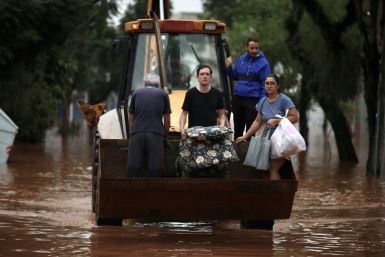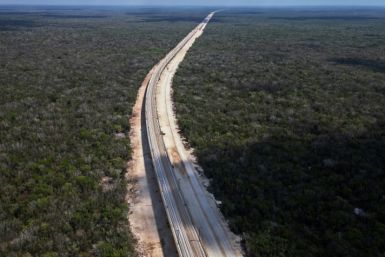Australian Stock Market Report – Afternoon 5/9/2012
MARKET CLOSE
(4.30pm AEST)
The Australian sharemarket lost ground for the second time this week and for the fourth time in five sessions. The All Ordinaries Index (XAO) slumped by 1 pct or 43.7 pts to 4332.2. Despite the delivery of the Federal Budget last night, investors were more concerned with the situation in Europe and in particular in Greece. The Greek sharemarket is trading at its worst level in around 20 years and its eventual exit from the Eurozone has become more likely.
Risk was taken off the table today, with the defensive telcos the lone sector to finish higher. Telstra (TLS) gained by 0.83 pct or 3 cents to $3.65. TLS shares are up by 9.6 pct since the start of January this year.
Commodity prices lost ground last night with investors concerned about the global growth outlook. Australia's largest listed business, BHP Billiton (BHP) fell 1.01 pct or 35 cents to $34.33 which is its weakest level in around a month. The smaller Rio Tinto (RIO) is trading at its lowest price of the year. RIO shares dropped 1.65 pct or $1.03 to $61.23.
The price of gold continues to fall and currently trades at just US$1591 an ounce. Australia's biggest gold producer, Newcrest Mining (NCM) plummeted by 5.25 pct or $1.32 to $23.80.
Wholesale and distribution business, Sigma Pharmaceuticals (SIP), held its Annual General Meeting (AGM) today. SIP said it recorded a $50.3 million profit over the year compared to a $73 million loss in the previous year. The company did not give any specific expectations for the coming year in dollar terms but said that management has a very positive outlook for the year ahead.
The major banks ended mixed today, with both Westpac (WBC) and ANZ Banking Group (ANZ) ending only a cent higher. Commonwealth Bank (CBA) fell by 0.81 pct or 42 cents to $51.66 while National Australia Bank (NAB) eased by 0.08 pct.
Today was a quiet day for economic news; however the latest tourist arrivals and departures report was released earlier in the day. The number of visitors coming to Australian in March rose by 1.9 pct and has hit record highs. Australians travelling overseas on holidays has jumped by a more significant 3 pct and has hit an 11-month high.
Commsec's Chief Economist, Craig James said that "Aussie airports are clearly busy at present. Not only are more people travelling interstate, but inflows and outflows at people at international terminals are continuing to grow. The number of tourists coming to Australia hit record highs in seasonally adjusted terms in March. And the number of Aussies travelling overseas was the second highest on record. In fact the total number of short-term tourist arrivals and departures hit a record high of 1.19 million people."
Last night at 7.30pm (AEST), the Federal Budget was delivered in Canberra. A surplus of $1.5 billion is expected by the government next year. If that surplus becomes reality next year, it will be the biggest turnaround (from deficit to surplus) in 60 years. Australia would also become the first advanced economy to return to surplus since the global financial crisis.
Low income families with school kids will be one of the winners of the budget as they will receive the SchoolKids Bonus. Companies will be amongst the losers, as they will not receive the proposed 1 pct tax cut. Defence spending will be cut significantly next year also. Australia currently spends around 30 times less on its military than the U.S.
The budget should not stop the Reserve Bank (RBA) from cutting rates in a few months. We are expecting a 25 bps (0.25 pct) rate cut in August. As a side note, the Australian government makes around 44 pct of its income from taxing individuals, 25 pct from companies and 15 pct from the GST.
Debt is often brought up (particularly in politics) as an area of concern in Australia. Australia still has the 11th lowest debt level of the 59 richest global economies. Our debt level is lower than in New Zealand, Switzerland, Germany, the U.K, the U.S and the Eurozone.
Commsec's Chief Economist, Craig James said that this was "...a clever budget with delays, deferrals and cancellations of measures. But also a very Labor budget. Of course the budget is inherently a political document as well as an accounting or economic document. Any spending goes to the "vulnerable" or to the battlers. And any nasties as such are grouped under headings such as "improving fairness", "better targeting spending" or "reprioritising"."
No major data was released in the region today, however tomorrow will be a little busier. China will announce its trade balance for March. A surplus of around US$5.3 billion is expected.
In Europe tonight, both the French and German trade balances will be out in addition to a bond-auction in the U.K.
No major data is expected to be issued in the U.S tonight.
Tomorrow will be one of the busiest days of the week in Australia. Newscorp, National Australia Bank and Optus will be releasing their profit results. Caltex, AMP and Rio Tinto will be holding their Annual General Meetings (AGMs).
The all-important monthly jobs report will be out at 11.30am (AEST) and is expected to show only modest job creation and an unemployment rate of 5.2 pct in Australia.
Volume of shares traded came in at 2.13 billion today, worth $5.55 billion. 222 shares were up, 844 were weaker and 361 ended unchanged.
At 4.30pm AEST on the Sydney Futures Exchange, the ASX24 futures contract is down 0.26 pct or 11 pts to 4269.
Due to daylight savings, most major European markets are now trading between 5pm (AEST) and 1.30am (AEST). Stocks are expected to open a little higher tonight.
Dow Futures are lower, indicating that U.S stocks could open in the red tonight. Due to daylight savings taking place in the second week of March in North America and the end of daylight savings in Australia, U.S markets will now be trading between 11.30pm (AEST) and 6am (AEST).
Turning to currencies, the Australian dollar (AUD) has weakened against the greenback and buys US100.7 cents. The AUD is currently trading at £62.3 pence and €77.5 cents. The AUD is trading at a fresh 5-month low. Generally, when the outlook seems uncertain offshore, the AUD tends to not fair very well. Australia is a commodity based economy, with coal and iron ore accounting for around half of Australia's (goods) exports.
It is also important to remember that just two years ago, the AUD was buying just US90 cents. A weaker currency is good news for the broader economy. Earlier this week, Australia recorded its third straight trade deficit, with a stronger AUD one of the drivers.
[Kick off your trading day with our newsletter]
More from IBT Markets:
Follow us on Facebook
Follow us on Twitter
Subscribe to get this delivered to your inbox daily






